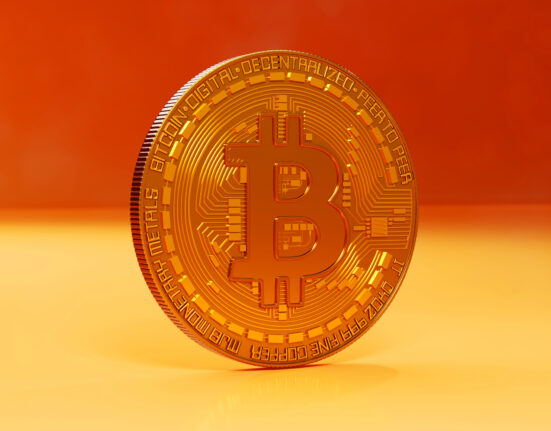What if it gets to a point where we can transact financially among ourselves without the need for a third party (some party who is neither a buyer nor a seller) to be involved? No more banks, no more paperwork, no more waiting periods?
Traditional financial intermediaries pose centralization, which is directly offensive to humans. Apart from that, high fees, lack of transparency, and limited accessibility are some inarguable cons of these institutions. As such, smart contracts are smart sets of agreements to be met by both sides of the transaction.
Smart contracts are digital agreements that run on the blockchain. They ensure that when specific conditions coded into them are met, the contract executes automatically. Picture a digital agreement that carries out its tasks without any human intervention.
It’s a breakthrough, turning traditional contracts into self-operating, secure, and trustworthy pieces of code. In simple terms, smart contracts automate processes, ensuring that agreements are met and seamlessly enforced in the decentralized world of Web3.
How Do Smart Contracts Work?
These contracts work on a series of “if-then” statements. If a certain condition is met, then the contract executes the agreed-upon action. This automation eliminates the need for intermediaries and speeds up processes. T
The Building Blocks:
- Blockchain: The foundation of smart contracts is the blockchain, a distributed ledger that records transactions across multiple computers.
- Code: Smart contracts are written in programming languages like Solidity, which is specifically designed for
- the Ethereum blockchain. This code outlines the terms and conditions of the contract.
- Triggers: These are specific events or conditions that, when met, initiate the execution of the contract. For example, a trigger could be the payment of a certain amount of cryptocurrency or the completion of a specific task.
The Execution Process:
- Deployment: Once a smart contract is written, it’s deployed to a blockchain network. This means that the code is stored on multiple computers, ensuring its security and immutability.
- Interaction: Users can interact with a smart contract by sending transactions to its address on the blockchain. These transactions can trigger actions specified in the contract’s code.
- Verification: The blockchain network verifies the transaction and ensures that it complies with the contract’s rules.
- Execution: If the transaction is valid, the contract’s code is executed automatically, carrying out the specified actions.
Real-World Examples of Smart Contracts
- Million Money: In mid-2020, Million Money, a decentralized financial platform built on the Ethereum blockchain, sparked the internet. The scheme led to the understanding of what a smart contract is. In million money, users invest a certain amount of Ethereum (0.025 ETH) and earn via a peer-to-peer matrix method.
The smart contract automatically manages the investment process, distributing earnings according to a predefined structure. It was popular for its transparency, as all transactions and distributions were recorded on the blockchain, making it impossible to alter or scam.
- Uniswap: Uniswap is a decentralized exchange (DEX). Uniswap allows users to trade crypto without relying on a central authority. The smart contract automatically facilitates trades, calculates prices using algorithms, and provides liquidity through user contributions, all without the need for a middleman.
- Propy: Propy uses smart contracts to facilitate the sale and purchase of real estate. The entire transaction, including signing contracts and transferring ownership, is automated through a smart contract, reducing the need for intermediaries like brokers and notaries.
- IBM Food Trust: For product tracking and verification, smart contracts on the IBM Food Trust platform ensure that every step in the supply chain, from farm to store, is recorded on the blockchain. This allows for real-time tracking and verification of products, improving transparency and reducing fraud.
Real-World Applications
- Finance: Smart contracts are revolutionizing finance with applications in decentralized finance (DeFi), automated lending, and insurance. They enable quick and secure financial transactions without the need for banks.
- Supply Chain Management: In supply chains, smart contracts enhance transparency and traceability. They automate processes like verifying the origin of products and ensuring adherence to quality standards.
- Tokenization: Smart contracts facilitate the creation and management of digital tokens, enabling the tokenization of assets. This includes turning real-world assets like real estate or art into digital tokens that can be traded on the blockchain.
- Legal Contracts: Traditional legal contracts are being transformed by smart contracts, reducing the need for intermediaries and ensuring the automatic execution of terms when conditions are met.
Importance of Smart Contracts in Web3
- Decentralization: Smart contracts play a crucial role in the Web3 era by enabling decentralized applications (DApps). These are applications that operate without a central authority, making them more secure and resilient.
- Transparency: In Web3, transparency is key. Smart contracts enhance transparency by providing a clear and unalterable record of transactions on the blockchain.
- Efficiency: Traditional contracts can be time-consuming and involve multiple parties. Smart contracts streamline processes, reducing the time and effort needed for tasks like financial transactions.
- Cost Savings: By eliminating the need for intermediaries, smart contracts can significantly reduce costs associated with traditional contract execution.
- Security: Smart contracts are tamper-proof once deployed on the blockchain. This makes them highly secure, reducing the risk of fraud or manipulation.
Final Thoughts
Here we have discussed smart contracts and how they have been implemented in the real world. Smart contracts are more than just a technological innovation; they are the foundation of the new internet era. They represent a fundamental shift away from centralized systems and toward a more decentralized, transparent, and efficient digital world.
Without smart contracts, the vision of a decentralized internet, where individuals have greater control over their data and transactions, would remain elusive. They are the engine that powers this new big thing, automating processes, reducing costs, and fostering trust.
As we move forward, it’s essential to embrace smart contracts and explore their full potential. By understanding and adopting this technology, we can create a future internet that is more secure, equitable, and responsive to the needs of its users.
We hope to see many sectors embracing smart contracts!
LinkedIn Version
Everyone likes privacy! Not AI though ):
Decentralization is the basic unit of web3 features, and decentralization comes from decentralization.
Smart contracts bring that world where you can transact directly with others without needing a middleman. No banks, no paperwork, just seamless, automated agreements.
What are Smart Contracts?
Smart contracts are self-executing agreements coded on the blockchain. They automatically enforce terms when specific conditions are met—no human intervention required.
This breakthrough technology is transforming traditional contracts into secure, tamper-proof digital agreements, paving the way for a more decentralized future.
How Do Smart Contracts Work?
Smart contracts operate on “if-then” logic:
- If a condition is met,
- Then the contract executes the agreed-upon action.
This automation eliminates the need for intermediaries, speeding up processes and reducing costs.
Smart contracts allow transparency, efficiency, and security across web3. From decentralized finance (DeFi) platforms like Uniswap to real estate transactions through Propy, smart contracts are revolutionizing various industries.
But have smart contracts ever really been around?💡
Within us, smart contracts have powered many platforms, making our tratransactionssy and transparent.
Care to read more?














Leave feedback about this